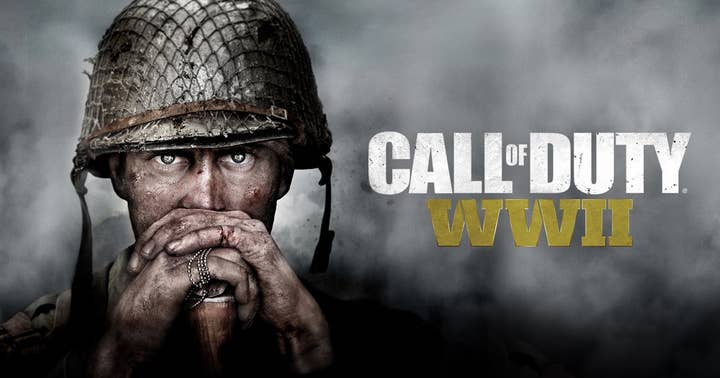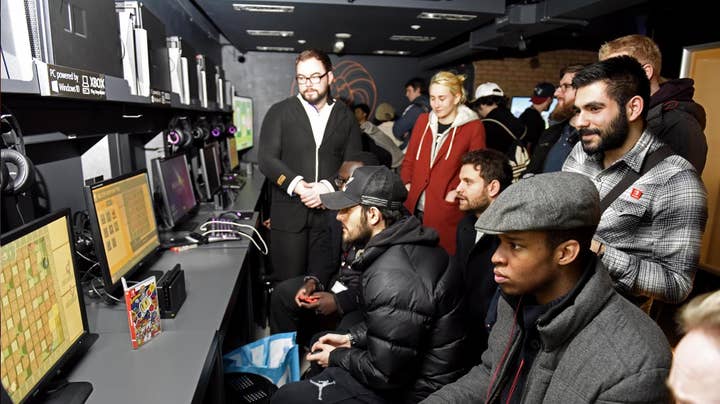The survival of GAME
Why the retailer is feeling defiant in the face of digital dominance
For a company that just posted a £10m loss, GAME was sounding surprisingly buoyant.
In fact, its shareholders didn't flinch, either; the firm's share price remained static following the disappointing results.
Not bad for a retailer that, to some analysts, is living on borrowed time.
GAME's unofficial message coming out of yesterday's results was that 'things will be better next time'. We've heard that same message after pretty much every financial update, yet this time it's based on hard statistics, rather than the vague hope over stock and products to come.

GAME's financial year ended on July 29th. It started poorly, with a series of underwhelming sales of major releases. GAME called out one 'AAA game' that had done particularly poorly, almost certainly referring to Activision's Call of Duty: Infinite Warfare. Typically one of the biggest launches of the year, last year's Call of Duty sold significantly fewer units in the UK than its predecessor.
Since then, however, things have got better. The second half of the financial year was an improvement, driven by a number of products, but namely Nintendo Switch. GAME had initially banked on the console to turnaround its financial performance, but had misplaced faith in the amount of stock coming to market and was forced to downgrade its estimates. Nevertheless, Switch was a key growth driver and stock is now more readily available.
"We obviously had stock problems to begin with, and although we don't have warehouses full of stock, we are getting a constant supply of new units in every week," GAME CEO Martyn Gibbs tells GamesIndustry.biz.
He believes Nintendo's machine will be the No.1 tech toy of Christmas, and there may still be some sell-out moments. "It's selling 49% of what the Wii achieved in its first 36 weeks, and is 300% up on Wii U. It's far surpassing the initial analyst expectations."
"Although we don't have warehouses full of Switch stock, we are getting a constant supply of new units in every week"Martyn Gibbs, GAME
It's not all about Nintendo (indeed, GAME has a lower market share on Nintendo products compared to PlayStation and Xbox). For the first 15 weeks of this financial year, GAME has also seen an improvement in overall market performance. PS4 games are doing well, and the company is pleased by the first week performance of Xbox One X (around 80,000 units sold in its debut week in the UK). But a lot of the recent optimism comes following the early sales of Call of Duty: WWII. The game is currently tracking 70% ahead of last year's Infinite Warfare in the UK (GfK figures), which will be a huge boost to the UK's market leading games store.
"COD, as we know, had a really challenging year last year," Gibbs acknowledges. "The numbers were obviously down, the market numbers and our own numbers. We think we are definitely back on track with that franchise now."

CFO Mark Gifford adds: "In a tough retail environment in the UK, we are seeing a strong sales performance in the first 15 weeks. To have a Nintendo category in Switch and SNES has obviously resulted in a positive sales uplift, but also the Xbox One X launch was very successful, and the line-up for games this year, so far, has generated significant sales improvement."
Indeed, UK sales of mint games are up 9.1%, while the overall sector (including hardware) for retail is up 1.8%. Spanish mint game sales (where GAME also has a strong retail presence) are up 14.2%, with the retail business overall up 9.2%.
"There's still a long way to go, with Black Friday still to come and all the deals around that"
Mark Gifford, GAME
"So it's a very encouraging start to the financial year," Gifford continues. "There's still a long way to go, with Black Friday still to come and all the deals around that. But it's very encouraging to start the year this strongly."
LONGER TERM PAIN
There were other, less concrete reasons for GAME's continued optimism. Next year, it posits, has a stronger release slate - at least to begin with. Titles such as Crackdown 3, Far Cry 5 and Red Dead Redemption 2, plus a number of strong PS4 titles, should help the market, the company suggests.
But this all feels very short-term. The trend in games is increasingly towards digital downloading. And as we reported last month, that's accelerating in Britain at a far faster rate than anticipated. Indeed, there are some console games arriving today that are 30 - 45% digital in the UK, almost double what they were a year or two years ago.
"Look, more people are downloading games, more people are buying additional content, that's been happening year over year, we've seen that. That's not new," says Gibbs. "The way we view it is that we are involved in those areas. Obviously, the physical disc is enormously important."
Gibbs is referring to the £135m the company generated from digital products for its last financial year (primarily driven by digital points cards). It's not insignificant, but it is low margin and it's not about to offset the decline in physical numbers.
Indeed, Gibbs says one of the best things about Nintendo Switch is the fact it is a far more physical-friendly machine. He observes that Switch has an initial software tie-ratio of three physical games per console, which is identical to the Wii - a machine that launched when digital downloading was still in its childhood. That, combined with IHS estimates that state Nintendo Switch is 78% physical (versus 47% for PS4), has given GAME confidence in the platform. The fact that GAME felt the need to point these figures out, shows that this is a company well aware of the negative impact of digital on its business.

So what's it doing about it?
For starters, it is cutting costs. It's clearly a painful process, with stores closing (UK store count has fallen from 313 to 304 in the last year), payroll reductions and efficiencies made at distribution. That will continue into the next year. A further 221 stores - 70% of its entire UK estate - will need to have their rents renewed next year, and GAME will be more than willing to walk away from stores where it can't agree a good deal. It expects to save £2m from this (with the prospect of more concessions following its recent partnerships with WH Smith and Maplins). It targets overall savings of £8.3m in the next year.
The company is also looking to sell its Multiplay Digital business, which provides back-end hosting support for major AAA multiplayer games. Gibbs says this business has always "sat outside" the company's core strategy of "building the most valuable community for gamers", and despite performing strongly, is not part of GAME's long-term thinking.
In addition, it expects to do better via its online store thanks to services like click and collect, and says it has had 60,000 people pay for its Elite membership scheme.
But the big piece of future proofing the company is banking on is esports and events - particularly, its Belong stores.
So far, these investments haven't resulted in anything material. Indeed, GAME states that its digital, esports and events business lost £6m in the last year, driven by increased investment in these areas. But Gifford says: "We do expect to see significant profit improvement in the year ahead from those activities", and a lot of that comes down to Belong.
Belong is an area within GAME stores (or next to GAME stores, or under them), featuring high-spec PCs that gamers can play on and compete together - at a price.

The firm has opened 18 of these stores over the last 12 months. It said earlier in the year that initial adoption has been positive, although didn't reveal numbers at the time. However, Gibbs was willing to go into far more detail this time.
The No.1 Belong arena is expected to bring in £200,000 a year, with relatively minimal cost. A typical large arena is estimated to bring in £133,000 a year. "It's fair to say we do not yet have maturity on this yet," Gibbs says. "We have spent minimal marketing pounds to date, and that's simply because we have full utilisation on certain days already."
There will be 35 Belong stores by the end of its next financial year, and Gibbs says that its Top 100 stores all have Belong potential. It is also closing stores in cities where they have more than one shop, and opening larger outlets so that it can feature a Belong. In fact, the company is also considering opening standalone Belong venues in key leisure areas.
"I honestly think we have a really important part to play in esports in the UK"
Martyn Gibbs, GAME
It all connects to GAME's big bet on esports, which is a industry that's still quite small in the UK.
"I honestly think we have a really important part to play in esports in the UK," Gibbs tells us. "If we ask why people aren't participating in esports, it is really that they either don't know how, or they don't think they're good enough. We are trying to take away both of those barriers with the deals we are trying to do with Belong. If we can get the grass roots element going, we are now doing Arena cash, which are the arenas playing off against each other in games like Tekken, Overwatch, Rocket League etc... we will be able to grow the UK esports scene."
The reality is that nothing has changed for GAME since we last spoke. Belong is still its big long-term focus and it hopes Nintendo Switch and certain key titles can keep its shareholders happy in the short-term. The shock introduction of Sports Direct as a major shareholder in July has yet to change anything, either ("It is early days," Gibbs says. "They are a major shareholder to us, but there's nothing new to say in that area.")
It's been a tough financial year, and the question of GAME's survival is frequently on the lips of the UK games business. Nevertheless, the retailer is still here, it is still fighting and its master plan is still on track.
Even so, the UK marketplace is volatile, and we still have the majority of the Christmas sales period left (including Black Friday). The first 15 weeks may have been positive for GAME, but in the words of Gifford: "There's still a long way to go."
